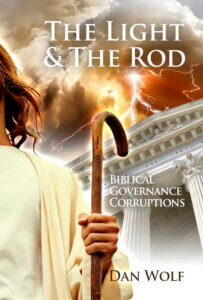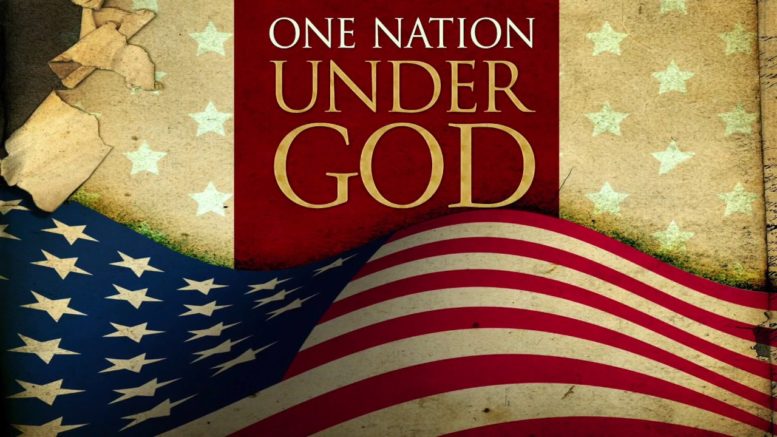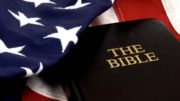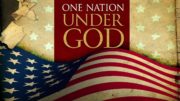We’re now ready to discuss critical theory’s objectives of identifying oppression and transforming society. This article discusses oppression and the next transformation. It begins with two things. First, defining oppression. Second, a recap of the previous article’s main points used for this discussion.
So, what is oppression? A dictionary defines it as, “to burden or keep in subjugation by harsh and unjust use of force or authority; to tyrannize.” Oppression is about one person or group using immoral means to control another individual or group. In political terms, it’s about tyranny. Implicit in this definition are notions of societal classes (division) and power.
As to the second item, a quick recap of critical theory’s main ideas so far includes;
- Man is without God.
- Critical theory combines philosophy with the social sciences. Man uses his own values and applies them through societal (governing) institutions.
- As mentioned above, man uses his judgment and values to identify oppression and remove it by transforming society.
Implications from these ideas include;
- God’s authority, values, and words are not recognized.
- Human governance is the only institution left after man denies God’s authority.
- Man’s values are transient as man is finite. He redefines words to fit the current situation, intending to gather power.
What could possibly go wrong? The rest of this article covers a little more about oppression, using these points to discuss implications for freedom, rights, and justice. Like critical theory’s ideas outlined earlier, we’ll see these are no more than repackaged far older pagan ideas.
Oppression
The above brings us to critical theory’s first problem. Without God, man bases society on what its people can provide it. Outward things such as wealth, skills, abilities, knowledge, leadership, etc. There is equality within these groups, but not across them. For any society to succeed, there must also be order. This class structure provides both order and oppression’s source. Some classes have the ability or means to rule—to exercise power. Force and coercion are justified against those who won’t submit. These ideas come from the Greek philosophers like Aristotle and Plato. The ruling power(s) create oppression through their institutions. Oppression arises when one is unwilling submit to their betters.
Societies based on Judeo-Christian principles are radically different. Christian principles look to man’s shared nature. This is true equality as there is only one class—the human race. God is our king, heaven our country, and God’s word our law. Moral individual decision making orders such societies, with morality coming from God. What matters here is does everyone have equal opportunity to make the most of their gifts? Human governance and law play minor roles; they step in when chance or immoral decisions create injustice.

Critical theory looks only at outcomes. There will never be equality in this sense as we do not all share the same skills, knowledge, or abilities. Equality only occurs in such societies when no one has power, so no one oppresses. All are equally miserable. But this is man’s state of nature according to Hobbes, written in the seventeenth century. Further, this state of nature drives man to form societies in the first place, giving some humans power to govern—the power to oppress.
So To Whom Do We Belong?
Man has a choice. He can choose whether to belong to himself or God. This goes back to the implications for man rejecting God in the last article (Critical Theory’s ‘Truth’). Critical theory contains another older pagan notion. This one from Spinoza. The prophets become simply men with vivid imaginations. It is up to man to divine scripture’s truth. Man using his own values and measures for morality. Why? Within critical theory’s ideas, God is seen as the ultimate oppressor. Man realizes his freedom only when removed from God’s oppression. Hmm. I seem to remember this argument in the Garden of Eden. It didn’t end well.
Freedom
Under critical theory, freedom also takes on a pagan flavor. Within this world-view man by nature is oppressed. Freedom exists only when oppression is absent. Freedom is the negation of man’s natural state of being oppressed. But only when you have power are you not oppressed. However, according to critical theory’s own ideas those who have power oppress those who do not. The oppressed becomes oppressor in an endless negative spiral. Critical theory fails the logic test.
Within Christianity, freedom is the free will we each have to make choices. It is part of our nature, and used in accomplishing our purpose. A positive gift, not the absence of a negative state. Man’s natural state is to live in freedom. But this gift’s benefit is only realized when man turns to God—the gift’s source. Freedom is directed toward good by Christian principles, and means learning to discern good from evil. On the other hand, freedom within critical theory is simply license for man to do whatever he can justify, and he can change words and values to make sure he can justify whatever he wants.
Rights
With critical theory, “Democratic norms of freedom can be made explicit [clear] in various rights … Such norms are often violated explicitly in exercises of power for various ends.”[1] Rights are created through citizen’s deliberations. “Democratic institutions have the proper reflexive structure … In them citizens deliberate as free and equal persons.” “[T]he results of deliberation must be expressed through law.”[2]
These are human rights. They are almost exclusively positive; they command something you either should or must do. Morality becomes defined by law. Consider abortion and today’s gender issues. There are many positive rights because each law is about a single specific thing, and they often conflict with one another. Laws are carried out by the administrative state—democratic institutions. Critical theory does acknowledge this approach’s limitations. First, such “explicit rules [laws] requires further rules [laws] apply them … Second, this approach cannot capture how norms are often only implicit [implied] in practices rather than explicitly expressed.”[3] Each law is about control and increasing power, and power about building coalitions to create enough influence to ‘steer’ these democratic institutions. So much for equality.
The Christian Response
We can compare these to God’s natural rights; these are also His gifts to man. These rights are almost exclusively negative in terms of power. There are relatively few of them because they outline the few things man is to avoid doing. The rest is up to us. This approach requires a moral people to exercise freedom.
A people’s choices order society rather than law through the principles, standards of behavior, and customs it develops. This is why becoming a citizen of another country often took a long time. For the Israelites of the Bible, becoming a citizen took three generations. It took a long time to learn these largely unwritten principles and how to act under them. Law is only used to correct some injustice. Injustice occurs through chance or someone’s immoral behavior. Justice under this approach is about accountability for one’s actions, rather than obedience to law.
A people create their society, but the peoples adhering to Judeo-Christian principles share a common kinship. They acknowledge the same God, His authority and word. They have a higher calling than this world. This places the material as the means for achieving the spiritual. This is order. God commands things because they are right (moral). Man makes things right because he commands them.
Justice
Within Christianity, justice is a virtue whereby each person receives their due. Justice is about accountability for one’s actions, be they good or bad. All virtues are righteous. They all voluntarily begin in faith and end in acts of charity. Acts performed out of love for another simply because we share the same nature. They fulfill divine law by showing love for God and our fellow man. Without God, man’s morality is cast adrift in the same way as his reason. It too becomes autonomous, subject to man’s control and desires.
Negative rights based societies employ a negative test for justice. Again, not in terms of right or wrong, but instead of power. People behaving morally make decisions approaching justice, but seldom reach it on their own. Law assists in correcting some injustice. Justice also evolves to meet changing conditions through society’s amending its customs, standards, and expectations. What truly matters is our effort to be just. You reach what you aim for. Within critical theory there is no accountability for actions; only for violating law.
Within critical theory’s world, justice is about submission. Obedience. Obedience to human law. Think again about abortion, gender issues, and the attacks on our religious liberty. But there is no liberty within a society employing critical theory. Only injustice. It is ironic that critical theory attempts to eliminate oppression and create justice through the very institution’s creating oppression and injustice in the first place. This shouldn’t surprise us. The Enemy works through deception, and critical theory is all about deception.
Footnotes:
[1] Bohman, James, “Critical Theory”, The Stanford Encyclopedia of Philosophy (Winter 2019 Edition), Edward N. Zalta (ed.), URL = <https://plato.stanford.edu/archives/win2019/entries/critical-theory/>. Accessed Sept., 2020.
[2] Ibid.
[3] Ibid.




